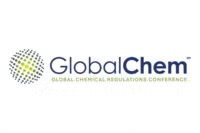WASHINGTON (June 20, 2022) — Ahead of EPA Assistant Administrator of the Office of Chemical Safety and Pollution Prevention (OCSPP) testimony before the Senate Committee on Environment and Public Works scheduled for later this week, the American Chemistry Council (ACC) called on the Agency to fix the critical New Chemicals Program before it’s too late. American businesses, jobs, innovation, and global competitiveness depend on a functioning, effective New Chemicals Program.
EPA routinely misses the statutorily mandated 90-day deadline to review and approve new chemicals. EPA’s process suffers from lack of staff expertise, inconsistencies in evaluation methods, lack of clear guidance on data needs, and inadequate communication and engagement with stakeholders.
“America’s chemical manufacturers shouldn’t have to introduce new chemistries in foreign countries because they can’t get their innovations through EPA’s problematic New Chemicals Program,” said ACC President and CEO Chris Jahn. “For the U.S. to retain its position as the world’s leading innovator, the EPA must correct course. New chemicals play a vital role in innovation and the creation of products and technologies needed to accomplish a wide range of critical supply chain, climate, sustainability, energy efficiency, and infrastructure goals.”
In a survey of ACC member companies, respondents representing approximately $97 billion or nearly one-fifth of U.S chemical sales, reported systemic delays, disregarded company-submitted data and inconsistent reviews:
- More than eighty percent of respondents reported it taking EPA more than 365 days for their new chemical reviews to be completed.
- Nearly seventy percent of respondents reported their biggest problem to be EPA delays in new chemical reviews and the resulting inability to start manufacturing in the U.S.
- Seventy percent of respondents reported their new chemical reviews being negatively impacted by EPA’s policy change to disregard workplace requirements and protocols to use personal protective equipment (PPE).
- Seventy percent of respondents reported deciding to introduce new chemicals in jurisdictions outside of the U.S. given the uncertainties and challenges with EPA’s New Chemicals Program.
Delays in the new chemicals process have a significant adverse impact on research and development expenditures, planning product launches, development of new sustainable chemistries, innovation, and competitiveness, and prevent the availability of new and innovative chemistries.
EPA must immediately put forth a comprehensive plan to reform its processes to ensure the New Chemicals program meets its obligation to complete reviews within 90 days. The Agency must enhance its communication with manufacturers, update its processes to be transparent and objective, ensure relevant supporting documents from companies are reviewed and adequately considered in a timely manner, and ensure that relevant information from actual use and exposures is considered and incorporated based on the best available scientific practices and approaches.


